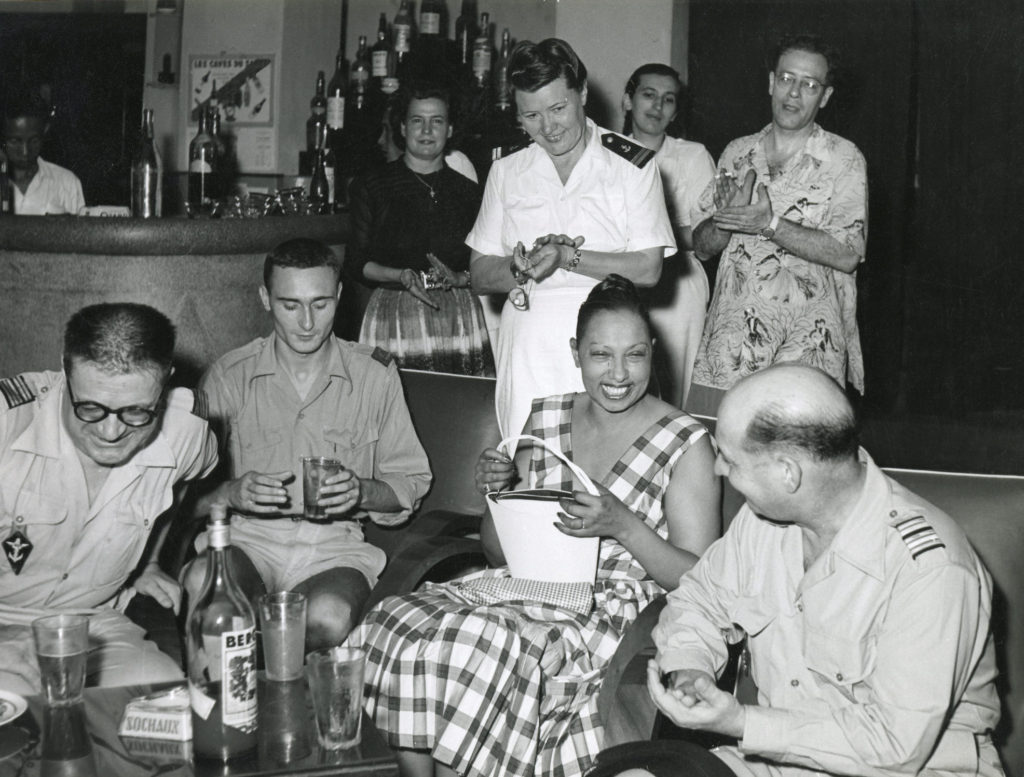Agent Josephine: From superstar to super spy
- Home
- Reviews 2020 - 2023
- Agent Josephine: From superstar to super spy

By Kristen Lawson
Josephine Baker: singer, dancer, actor… spy? The American star is best known for headlining the Folies Bergère in the Roaring Twenties and walking her pet cheetah through the streets of Paris on a diamond collar. It seems impossible for someone so recognizable to carry out covert operations, yet that is exactly what Baker did from 1939 until the end of World War II.
Damien Lewis’ new book Agent Josephine: American Beauty, French Hero, British Spy — published by PublicAffairs — is a historical account of Baker’s life during World War II, but it reads like a spy thriller. We learn not just of her role, but of other everyday people risking their lives, of top intelligence agents, and about the inner workings of organizations like the French Deuxième Bureau, the British Secret Intelligence Service (SIS), and the German Abwehr.
 Lewis delves deep into the history, revealing details that were classified until recently. Some details will remain classified forever, and others are debatable because the people who lived them either never spoke about what they did during the war, or only gave their accounts many years later. Josephine Baker went to her grave keeping her secrets.
Lewis delves deep into the history, revealing details that were classified until recently. Some details will remain classified forever, and others are debatable because the people who lived them either never spoke about what they did during the war, or only gave their accounts many years later. Josephine Baker went to her grave keeping her secrets.
Still, Agent Josephine is full of action and intrigue. Lewis has a tendency to use his favourite words over and over — clandestine, and cloak and dagger, appear so often they start to lose meaning. This and his clearly British point of view (Canada, for instance, appears once in his entire retelling of WWII, referred to only as one of “Britain’s colonies”) don’t detract from the gripping tale uncovering a different side of the fight against Nazism, and of Baker herself.
Josephine Baker was known for her intimate acts, strolling through the audience making jokes and touching shoulders. Her dancing was unique due to her physical comedy and scandalous costumes. Baker is most well-known today for her performance wearing nothing but a skirt made of bananas. An unlikely candidate for a secret agent, she uses her notoriety to her advantage, acquiring information through her high-profile network, charming border guards, and smuggling sensitive information in her voluminous tour luggage. No one dared to stop such a celebrity for an inspection, only for autographs.
Her handler (and lover) Jacques Abtey travelled as her tour manager. Their story is inspiring — they did whatever was necessary to liberate France, including working with the American Mafia and Moroccan cigarette smuggling networks to track and monitor enemy agents and warships. When Baker was confined to bedrest at a clinic in Casablanca, her room became a rendezvous point for military officials, politicians, and agents passing information from one to another under the guise of visiting a favourite performer.

The extremely high stakes of the war make Agent Josephine a thrilling and emotional read. Lewis’ approach to storytelling is very visual — I could see the swastika flag flying over occupied Paris, Abtey writing in invisible ink, and Baker performing for sick and dying victims of war.
The author links her resilience and deep-held belief that everyone should be free to the fact that she was a black American woman. A descendant of slaves, her family history of fighting and keeping hope alive went back many generations.
Despite the historical setting, some things in Agent Josephine evoke current events. The rush of Americans fleeing Paris as the Nazis invaded France is reminiscent of the mass evacuation from Afghanistan in 2021. Berlin propagandists turning Irish nationalists toward fascism by exploiting their hatred for England also sounds all too familiar.
Reading this book made me think a lot about how people react to conflict. We see Baker, willing to risk everything for the sake of freedom, and General Pétain, collaborating with Germany to keep the bombs from falling on France. We also see the aggressors, opportunists, deniers, and more. Despite the huge divergence in reactions, they all read as completely human.
Perhaps that is why the story resonates so much — these are real people living through real events, ones that still affect our lives today.

